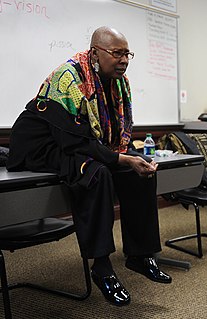A Quote by Tenzin Palmo
Most of the people I talk to are not going to go off and live in a cave. Why should they? So I talk about how people can stop separating dharma practice - going on retreats, going to dharma centers, hearing talks, reading books - from their ordinary life.
Related Quotes
When I talk about how we're going to pay for education, how we're going to invest in infrastructure, how we're going to get the cost of prescription drugs down, and a lot of the other issues that people talk to me about all the time, I've made it very clear we are going where the money is. We are going to ask the wealthy and corporations to pay their fair share.
I think it would help if, when people are first ordained, they underwent a period of strict training, maybe for several years. During this time they would learn basic Buddhist philosophy in a monastic community where all the teaching and training was directed toward living a perfect monastic life and wasn't channeled out to fit into the lay life - which is what usually happens in Dharma centers where the teachings are directed toward how to live the Dharma in your everyday life.
Perhaps Westerners are in a better position to practice true renunciation than uneducated Orientals because most Western people, by the time they come to the Dharma, have led a pretty full worldly life with lots of sensual pleasures, money and lots of toys to play with. They have seen that the path of accumulation of worldly treasure does not lead to happiness or contentment. That's why they come to the Dharma.
The dharma is the most precious thing in the world and we should put it at the center of our hearts and transform our whole lives into dharma practice. Otherwise, at the time of death, we will look back and say, now what was all that about? If we truly want to benefit others and ourselves, we have to do it. No excuses.
What a thing it is to sit absolutely alone, in the forest, at night, cherished by this wonderful, unintelligible, perfectly innocent speech, the most comforting speech in the world, the talk that rain makes by itself all over the ridges, and the talk of the watercourses everywhere in the hollows! Nobody started it, nobody is going to stop it. It will talk as long as it wants this rain. As long as it talks I am going to listen.
All of the external circumstances and the rude and difficult people we meet, instead of getting angry, upset, or frustrated, we see that we can take them all and use them on the path in a way that actually invigorates and strengthens us, rather than defeats us. It's all very practical advice, and that's why I talk a lot about how to make our daily life into Dharma practice, otherwise it's easy to feel hopeless and helpless.
The art of dharma practice requires commitment, technical accomplishment, and imagination. As with all arts, we will fail to realize its full potential if any of these three are lacking. The raw material of dharma practice is ourself and our world, which are to be understood and transformed according to the vision and values of the dharma itself. This is not a process of self- or world- transcendence, but one of self- and world- creation.
My wonderful editor, Jackie Onassis, asked me to write a book that I wanted to write. I said, 'Look, it's not going to be scandalized. I'm not going to talk about anybody like a dog. I'm going to say the positiveness of my life, and talk about those who have contributed to the way I've been going, and that's that.'





























